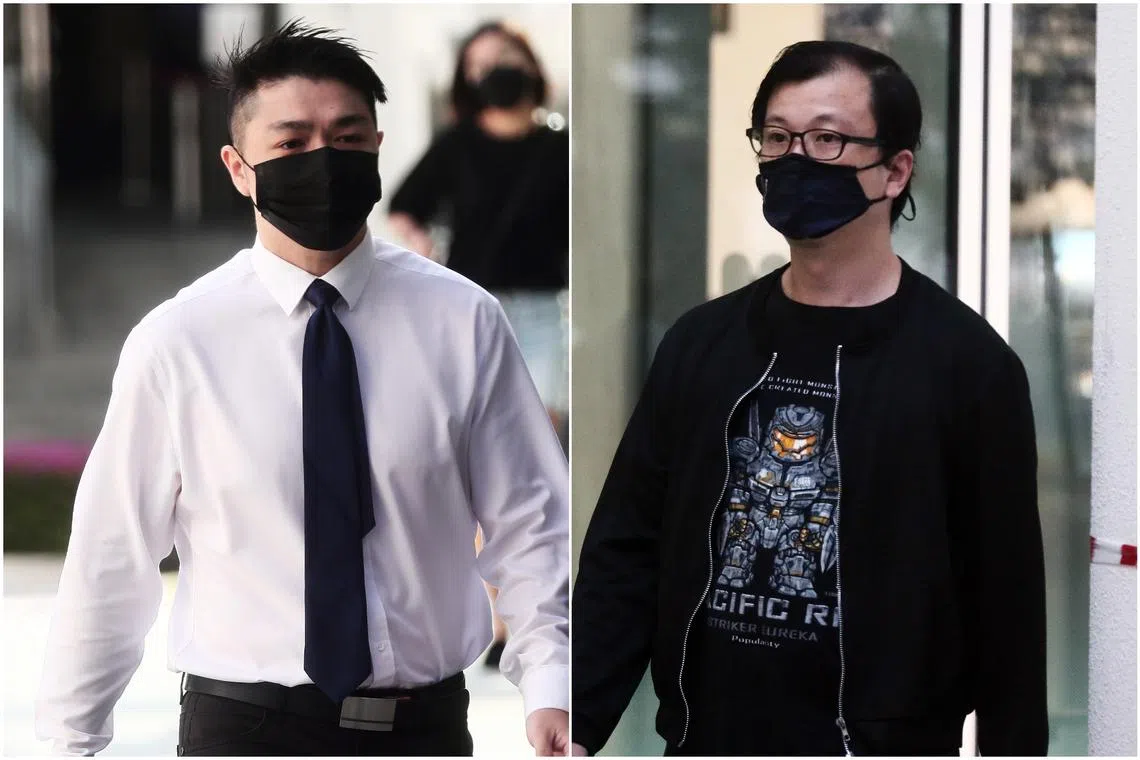District judge fell short of standards, but conduct did not amount to apparent bias: CJ Menon
Sign up now: Get ST's newsletters delivered to your inbox

Chief Justice Sundaresh Menon made the remarks as he delivered his decision to allow an appeal by a man jailed by the district judge in April.
ST PHOTO: LIM YAOHUI
Follow topic:
SINGAPORE - A district judge who reproduced large chunks of the prosecution’s submissions in his written grounds of decision fell short of the standards of professionalism expected of the judiciary, Chief Justice Sundaresh Menon said on Wednesday.
But the Chief Justice ruled that while the district judge’s conduct was “wholly unsatisfactory as a matter of judicial practice”, it did not give rise to a reasonable suspicion of bias, and thus was not a basis for setting aside the judicial officer’s decision.
He said that when a court reproduces one side’s arguments and fails to engage with the submissions of the losing side, it leaves the losing party feeling that its case has not been fairly considered.
“I do not regard this as reflective of the general attitude of our judicial officers, who uniformly and consistently uphold the highest standards in their daily work of discharging the grave responsibility that is entrusted to them. Their efforts should not be tarnished by this incident,” he said.
CJ Menon made the remarks as he delivered his decision to allow an appeal by a man who was sentenced to 16 weeks’ jail in April by District Judge Soh Tze Bian
He reduced the jail term to 12 weeks on Wednesday after concluding that the risk of the potential harm to the Health Promotion Board (HPB) was low.
The offender, Australian David Christopher Newton, 44, had served the original term and left Singapore.
Mr Newton had paid $6,000 to general practitioner Jipson Quah and the doctor’s then clinic assistant Thomas Chua Cheng Soon to falsify vaccination records for himself and his wife.
In December 2021 and January 2022, Quah injected Mr Newton and his wife, Ms Wonglangka Apinya, 32, with saline solution before submitting the false records of vaccination to the National Immunisation Registry.
Mr Newton, who did not want to be vaccinated against Covid-19, was offered a job in Australia but faced difficulty entering the country because he was not vaccinated.
He contacted Chua after joining the Telegram chat group of anti-vaccine group Healing the Divide. His wife did not know about the deception.
After the offences were uncovered, Mr Newton was handed two charges of cheating for conspiring with Quah and Chua to cheat the HPB.
Quah and Chua have been separately charged. Their cases are pending in court.

General practitioner Jipson Quah (left) and his then clinic assistant Thomas Chua Cheng Soon have been separately charged. Their cases are pending.
PHOTOS: ST FILE
Mr Newton’s case was fixed for a hearing for him to plead guilty. Meanwhile, the prosecution and the defence filed written submissions setting out their positions on sentence.
At the hearing on April 27, 2023, Mr Newton pleaded guilty to one charge and agreed for the second to be taken into consideration. Judge Soh then told the parties that he had read their submissions. He said he had prepared his grounds of decision and will highlight the reasons for the sentence he was handing down.
Despite having served the 16-week jail term, Mr Newton pursued an appeal through his lawyer, Mr Paul Loy.
During the appeal hearing in August, Mr Loy alleged apparent bias as one of his arguments, although he eventually dropped this point.
The lawyer pointed to the fact that the judge had reproduced substantial portions of the prosecution’s submission to prepare his grounds of decision before hearing oral arguments.
On Wednesday, in his written judgment, CJ Menon said a judge is often likely to arrive at a provisional view after having read, digested and considered written submissions, and may well come to a hearing prepared with a draft or outline of the decision.
In the present case, he found that the district judge’s conduct did not give rise to a reasonable suspicion or apprehension of bias in a fair-minded and informed observer.
CJ Menon said the views held by the judge by the time he came to the hearing were the result of his study and assessment of the written submissions.
He added that it was evident from the judge’s questions to Mr Loy at the April 27 hearing that he had considered the lawyer’s arguments but was not persuaded.
Turning to Mr Newton’s sentence, the Chief Justice noted that prosecutors had argued that HPB would suffer potential reputational damage if members of the public questioned its ability to maintain an accurate repository of public health records.
But he said there was nothing to suggest that the inaccuracy was publicly perceived as anything other than an isolated error.
CJ Menon added that in the light of how quickly Mr Newton’s attempt to beat the system had been uncovered and thwarted, the public would quite quickly have concluded that the safeguards in place were robust.


